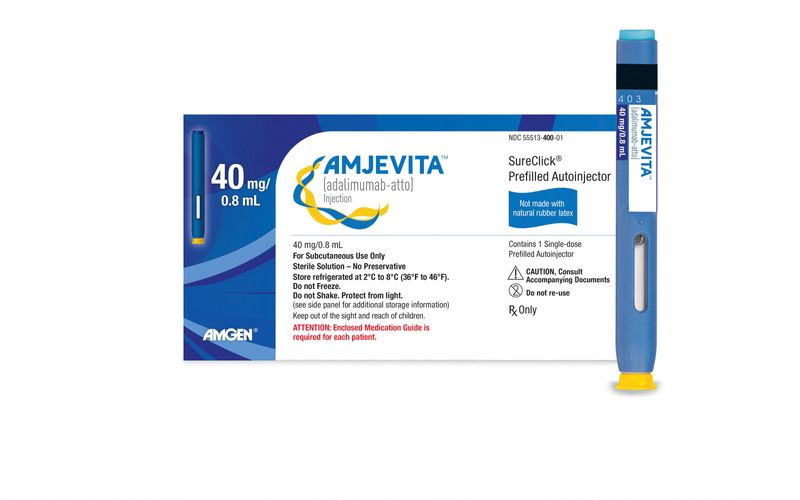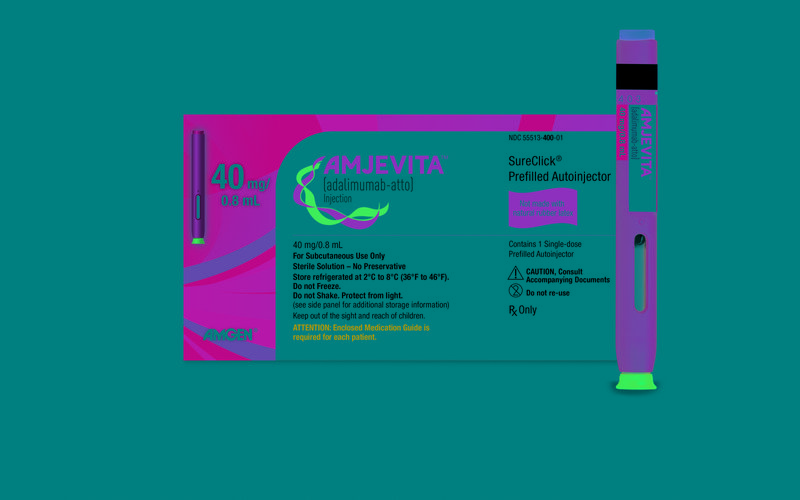By Patrick Wingrove
(Reuters) -U.S. patients will finally get access to cheaper versions of AbbVie (NYSE:ABBV) Inc’s blockbuster arthritis drug Humira this year, but the cost savings are expected to be limited.
Rival drugmaker Amgen Inc (NASDAQ:AMGN) on Tuesday launched Amjevita, the first biosimilar version of AbbVie’s 20-year-old drug, with two tiers of pricing. One sets a 5% discount to Humira’s monthly price of $6,922. The other will be about half price but may not be widely available.
Most patients’ co-insurance costs are set as a percentage of list price and are expected to be calculated off the higher price.
At least another seven Humira biosimilars are expected this summer and could debut with discounted list prices. Even then, patient groups, pharmacists, doctors and academics said they will be obscured by the U.S. private insurance system of middlemen negotiation and after-market discounts called rebates.
Pharmacy benefit managers (PBMs) say that the deep discounts they receive are returned to insurers and employers to lower their overall medical costs.
Benjamin Rome, a drug pricing researcher at Harvard Medical School, said introduction of biosimilars in the United States has not sent prices tumbling as originally expected.
Unlike pills, which have extremely cheap generic copies, complex, expensive biologic drugs made from living cells cannot be exactly duplicated. Their closest alternatives are called biosimilars.
"The bottom line is it’s feasible that even if prices for Humira and biosimilars go down, this could be in the form of higher rebates to PBMs rather than actual lower prices that are passed onto patients," Rome said.
The U.S. pays the highest drug prices in the world, in part because many different private sector companies do not have the power of a single government payer.
The Biden Administration’s Inflation Reduction Act will allow the government’s Medicare program for people aged 65 and older to negotiate prices of its most costly medicines, but drugs like Humira with direct competition are excluded.
Humira - the world's biggest selling non-COVID prescription drug - is used to treat rheumatoid arthritis, Crohn’s disease, ulcerative colitis and psoriasis.
A 5% lower list price would result in a savings of about $35 a month for a person whose coinsurance payment is 10% of the list price.
Some patients who qualify for AbbVie’s patient assistance programs pay heavily discounted rates. Amgen has launched a similar savings program for its version.
There are currently about half a dozen drugs with biosimilar competition in the United States. Prices of those have decreased up to 20%, according to a report from the National Bureau of Economic Research.
Amgen has set list prices of $1,557 and $3,288 per 40 milligram pen device, a two-week supply. Amgen executive Murdo Gordon told Reuters the lower price would attract healthcare systems that act as both an insurer and a provider and typically do not seek after-market discounts.
"If you think of a pharmaceutical benefit manager, they would prefer the high list price, because their business model is extracting rebates from manufacturers and passing them on to their employer, customers or their downstream health plan customers," Gordon said.
UnitedHealth (NYSE:UNH) Group’s OptumRX and Cigna Corp (NYSE:CI) said last year they had deals to make Humira, as well as rivals from Amgen and others, available under the same pricing and access terms. CVS Health, another large PBM, plans to include the drug on its coverage list but as non-preferred with less favorable terms.
JC Scott, president of the Pharmaceutical Care Management Association, said PBMs want more competition in the prescription drug marketplace and discouraged delays sought by drugmakers.
"The bottom line is that increased competition is the most effective and sustainable way to drive prescription drug costs down," he said.
LIST PRICES TO FALL
In Europe, where governments negotiate drug prices, AbbVie offered up to 80% discounts in November 2018, a month after Humira went off patent, Reuters reported.
Additional AbbVie patents continued to protect it in the United States, and the company struck deals with Amgen and others to allow rival drugs in exchange for royalty payments.
AbbVie declined to comment.
Douglas Hoey, chief executive of the National Community Pharmacists Association, said he expected U.S. prices for drugs of this type to fall about 15%-20% after new competition enters in July.
But Robert Popovian, the chief science policy officer at patient advocacy group Global Healthy Living Foundation, said it would take further market and public pressure after the summer entries to get list prices down.
Analysts expect the introduction of biosimilar competition will drive down Humira sales. They are forecasting sales of $21.2 billion in 2022, dropping to $13.4 billion this year and $8.3 billion in 2024, according to Refinitiv. Analysts expect Amgen’s biosimilar to garner sales of $747.6 million in 2023 and $933.8 million in 2024.
Marcus Snow, a rheumatologist at the University of Nebraska Medical Center, said he would prescribe adalimumab, the chemical name for Humira, based on price and each patient’s insurance coverage terms.

All things being equal, he said, he would keep existing patients on Humira and try to put new patients on the medicine that was most likely to be given preference on formularies in the future, to avoid switching.
"I wouldn't expect to see the price changes that we all hope to have in the first year," Snow said.
